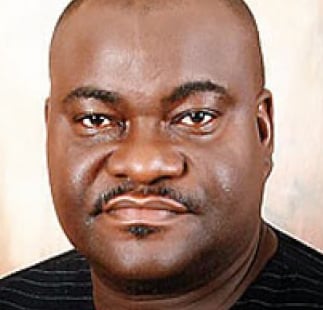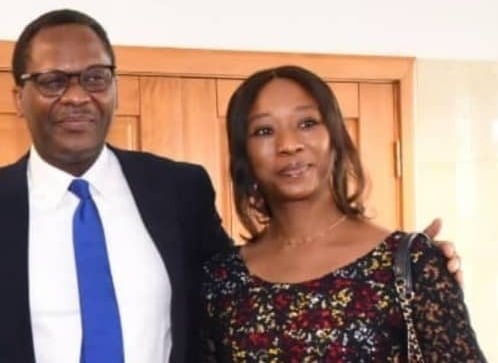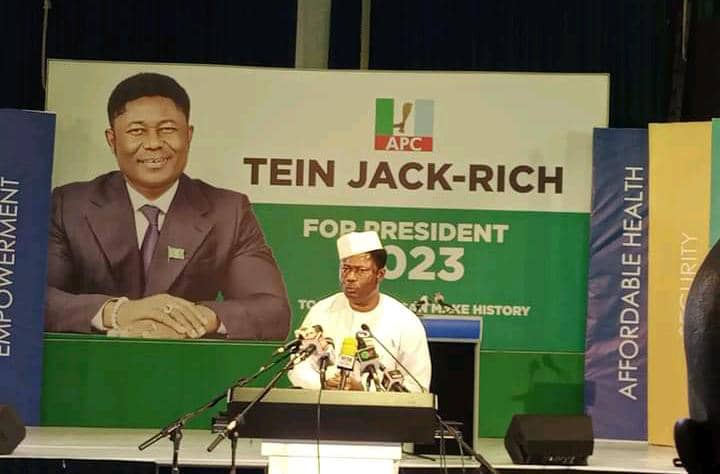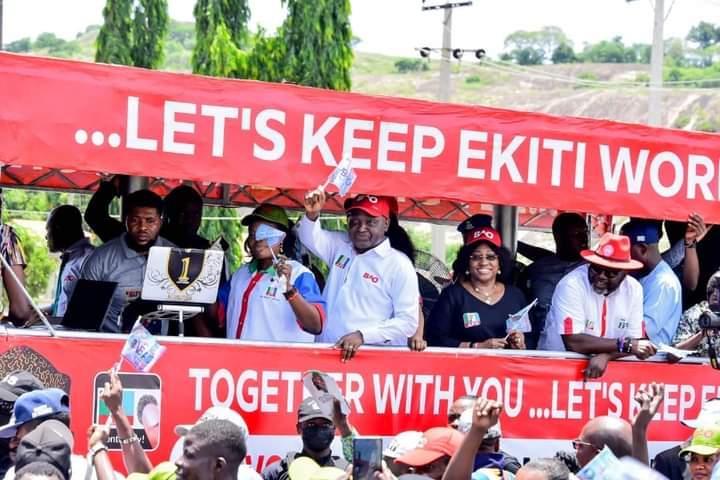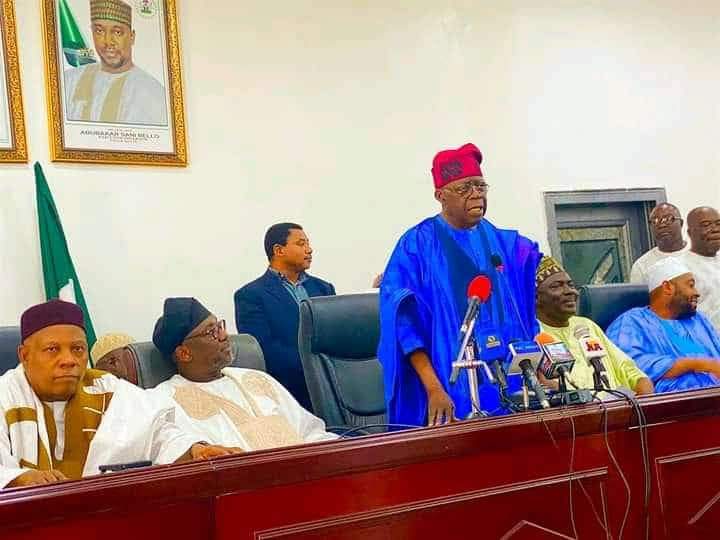BY TUNDE OLUSUNLE
Today, Saturday, May 14, 2022, is the 28th wedding anniversary of Babatunde Ayokunle Irukera, Executive Vice-Chairman, Federal Competition and Consumer Protection Commission, (FCCPC). Irukera and I have several points of mutual convergence, too striking to be ignored. I was born in Kaduna, the headquarters of the old Northern Nigeria. Irukera was born in the same city when it was the capital of the North Central State. We bear the same first name, “Babatunde,” which is usually vested on male children who are born in the aftermath of the demise of a father or grandfather, in Yorubaland. Since, very happily, our fathers received us at birth, we are, therefore, successors to our grandfathers. While it has always been a challenge for me to encounter people with whom I share cherished landmark dates, I have just discovered that Irukera and I got wedded to our wives not only on the same day but the same month and the same year, this day, Saturday, May 14, 1994!
Instructively, our wives, who are yet to meet each other, by the way, are educationists in various capacities and academic systems. Mabel Foluke Irukera is the proprietor of the Lagos-based institution, The Destiny Trust, (TDT), which manages “Adventure Schools,” and is committed to the empowerment of destinies, according to its mission statement. She is an Early Child Education Consultant, Youth Counsellor, and Life Coach. My wife, Funmilayo Kikelomo Olusunle on the other hand, is a Deputy Director in the Department of Quality Assurance, (DQA), an agency in the Education Secretariat of the Ministry of Federal Capital Territory, (MFCT). She had spent years in classrooms and subsequently served as administrator, arbitrator, and counsellor, respectively. The names of both women, begin with the alphabet “F.”
The name of Tunde Irukera’s family went ahead of my formal meeting with him. We eventually got to meet for the first time about ten years ago. Yet, there have been unsung congruences between our families over time. My father, may his soul rest in peace, owned an animal feed mill, one of the earliest established in Ilorin, around 1979, in the *Ero Omo*/New Offa Garage section of the Kwara State capital. Directly adjacent to my father’s enterprise was a processing plant for tuberous produce, fondly referred to as *Agbeloba,* (the farmer is king), or simply *Ile garri* by patrons of the facility and residents of the area.
Advertisement
Not many people got to meet the proprietor of the facility, but they knew it belonged to *Mama Irukera.* The Irukera name also resonated in the community of the University of Ilorin, (Unilorin), where I was a student between 1982 and 1985; and between 1987 and 1989, respectively. *Baba Ayodele Irukera* was a very senior administrator within the university system. As students, our paths rarely crossed with those of bureaucrats. But it was clear that Baba Irukera was the spouse of Mama Irukera.
By some coincidence, a younger Irukera, Tunde, attended the Federal Government College Ilorin, (FGCI), with one of my siblings, Lydia Ibironke Osasere-Omoruyi, (nee Olusunle). Early October 2014, I was on a delegation of leaders from my traditional address, Isanlu, headquarters of Yagba East local government area of Kogi State, to Egbe, the hometown of the Irukeras. We attended the installation of Oba Ayodele Irukera, as *Elegbe of Egbe,* the paramount ruler of his community.
The people of the historic town of Egbe, are an integral component of the Yagba stock in Okunland, Kogi State. Yagbaland extends from contemporary Mopa, through communities like Effo-Amuro, Isanlu, Ejiba, Odo-Ere, all the way to Egbe, across three local government areas: Mopamuro, Yagba East and Yagba West. Traditionally, therefore, the Yagba people and their other Okun-Yoruba brethren, are kinsmen. Through all of these, I never got to meet Babatunde Irukera, not even for one fleeting second!
Advertisement
Ahead of the 2014/2015 electoral cycle, however, Irukera and I finally met. He was being encouraged by the people of Kogi West to take a shot at the senatorial position of the zone. There was an unwritten, mutual agreement between the three federal constituencies in Kogi West, to rotate the office. Lokoja/Kotonkarfe and Kabba Bunu/Ijumu constituencies had served two terms each, between 1999 and 2007, and from 2007 to 2015. Naturally, it was the turn of the third leg of the geopolitical tripod, Yagba federal constituency, to take its turn. And Irukera desired to have a go at it.
He had been advised I was one of the stakeholders he should visit and consult with on the subject. He was chaperoned to my place by a friend of his, who had always deferred to me as an elder brother. That the earlier gentleman’s consensus enthroned with regards to the rotation of the said senatorial office has since been consumed by selfishness, greed and avarice, is not the focus of this piece. Importantly, Irukera and I would subsequently meet again at the instance of Sports Minister, Sunday Dare, as we previewed the 2019 general elections.
Our interactions have become much more regular and closer, ever since, especially since his official relocation to the nation’s capital, as chief executive of FCCPC, in early 2019. He operates a very busy schedule, which keeps him regularly shuttling through eight external outposts of his organisation, among other itineraries. He equally has to keep pace with managing a family resident in major cities across the world.
Irukera, however, has serially acquitted himself as a humble, courteous, unassuming technocrat and gentleman, the prototype *omoluabi* within the Yoruba socio-cultural context. He is not the typical Nigerian executive or “Johnny Just Come,” (JJC), a big man whose nose floats in the air and who invents a novel hubris and fakery, to embellish his affectation. His subsisting standing as a royal count for little in his carriage and engagements. And don’t mistake his cosmopolitanism for inability to speak his Yagba dialect, as distinct from Yoruba. Irukera will surprise you.
Advertisement
Irukera and I “meet” more or less, every other day, these days. We belong to a number of sobre-minded WhatsApp groups established respectively by our alma mater, and homeland, respectively. He has something of an amphibious academic profile, having registered to study law in the early days of the programme on the curriculum of Unilorin, when it had not been fully accredited, in one breath. On the flipside, that generation of law students was eventually taken up by the Obafemi Awolowo University, (OAU), where he graduated in 1989. He thereafter attended the Nigerian Law School, (NLS), between 1989 and 1990.
How he navigates both alumnae families is truly intriguing. But Irukera rises up to the occasion whenever any of the bodies to which he belongs, Okun-based, Unilorin-slanted, and so on initiates worthy causes. Oftentimes, he prefers to chip in his bit, away from the public arena.
While his wife continues the pursuit of her passion for human capacity building, Irukera has been diligent in the development of his legal career. At various times, he has worked as Counsel to the former Rims Merchant Bank and Associated Properties and Trust Plc, both in Lagos, between 1990 and 1995. He emigrated to the United States of America, (USA) in 1995, and was Partner, Thomas and Irukera LLC, Chicago, Illinois, from 1997 to 2000. He became Managing Partner, Partners, Attorneys and Counsellors LLC, Chicago, from 2000 to 2006, and subsequently Partner, Simmon Cooper Partners, Lagos, since 2006. He has handled an avalanche of briefs for several public and private concerns across his eventful career, before his appointment into his present schedule, early 2019.
A little over three years ago, Irukera took over an agency hitherto known as the Consumer Protection Commission, (CPC), as Director-General and Chief Executive. Before then, little was ever heard or felt in the public space, about the operations of the organisation, which was established, as the name suggested, to insulate consumers from the shenanigans and mischief of a wide array of service providers. He has since reengineered the department into a much more focused, proactive, respectable and result-oriented one.
The reincarnated FCCPC under his watch, is generally acknowledged today, as a more consumer-friendly concern, wholly committed to equity and justice, for the consuming public. FCCPC today is unequivocally dedicated to offering succour and justice to Nigerians, by ensuring that they get true value for their money on products and services. FCCPC, also guarantees level-playing fields for operators in the broad canvas of sectors of the nation’s economy. FCCPC under Irukera, has also relocated its headquarters from the hitherto constrained operational space in Wuse, Abuja, to a more conducive location in Asokoro District in Abuja, abutting the seat of the federal administration.
Advertisement
Tunde Irukera is extremely passionate about whatever he believes in. Distances are no deterrents to him. He reminds us about a section of the lyrics in one of the hit tunes s of *juju* music icon, Sunny Ade, which suggests: *Eni ti a o fe, ni ile e n’ jina.* This translates as: “It is the home of that friend we loathe, which seems like an eternity before our eyes.” At a time our part of Kogi State was under siege by marauders and kidnappers, Irukera dared the roads to attend a high-powered converge, committed to the Okun cause in 2016, hosted in Kabba, the political headquarters of the Okun nation. The meeting was convened under the auspices of the *Okun Development Initiative,* co-steered by Olusuyi Otitoju and Lekan Aiyenigba, both respectable church ministers, to chart a new course for a people so endowed, yet so underdeveloped. Okunland is regarded as that ethnic group in Nigeria, with the largest single pool, of professors, numbered in excess of 500. About a dozen of these figures have been Vice Chancellors of various universities in Nigeria. Irukera stayed the whole duration of the event, which stretched over a few days.
Mabel Foluke Irukera, hails from Ogidi in Ijumu LGA, Kogi State, while Funmilayo Kikelomo Olusunle is from Ikire, Irewole LGA, in Osun State. Both ladies, to the glory of God, are joyful mothers of two sons and one daughter, respectively. The Irukeras have Ife, Olaoluwakitan and Fentan, and the Olusunles, Aramide, Abayomi and Tobiloba. Both mothers are ordained ministers of God, under the umbrella of the Redeemed Christian Church of God, (RCCG), in their various parishes in Lagos and the FCT, variously. They are very active in women groups in their parishes and provinces. And they are similarly up and doing in church departments committed to the nurturing and mentoring of children and youths, as critical safeguards for the future of our children, for Christendom and the nation. May both unions thrive happily forever, beyond their “pearl,” “ruby,” “golden” and “diamond” anniversaries.
Advertisement
Tunde Olusunle, PhD, poet, journalist, scholar and author, is a Member of the Nigerian Guild of Editors, (NGE).
Advertisement
Add a comment
